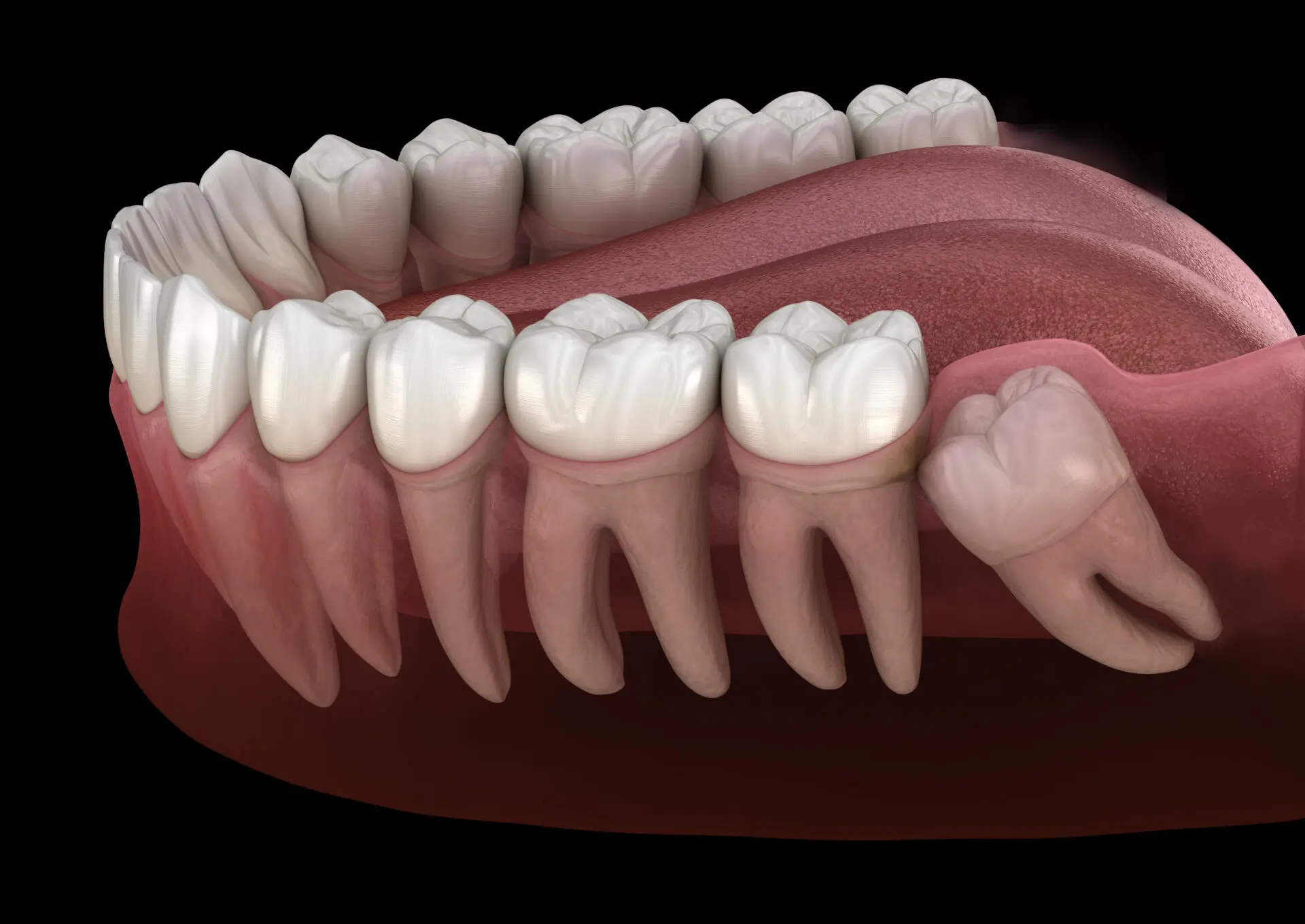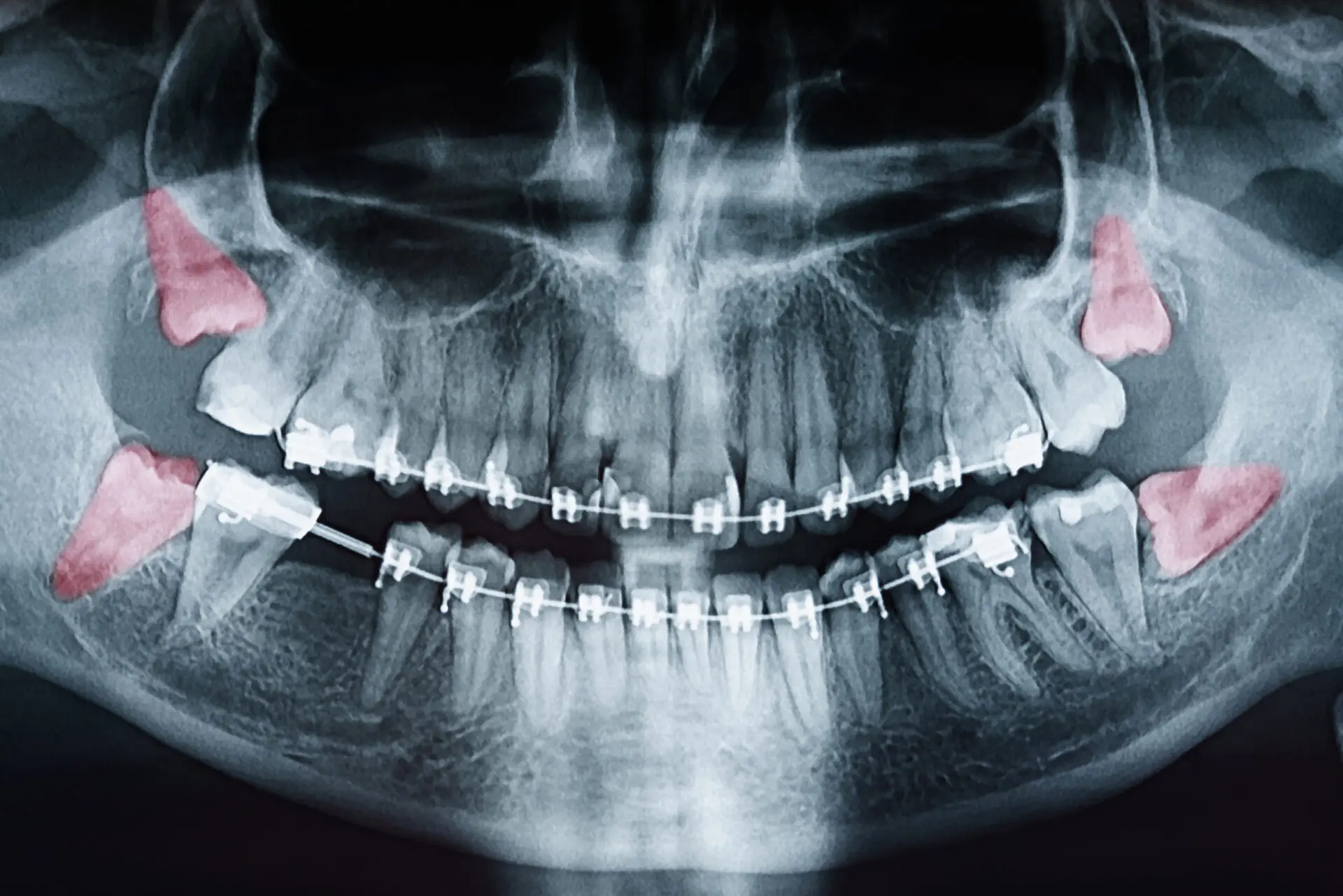
07 Oct Wisdom Teeth: Expert Advice from a West Kelowna Dentist
Wisdom teeth, also known as third molars, are the last teeth to emerge in our mouths. While they served an evolutionary purpose for our ancestors, many people experience problems when these teeth start to come in, often leading to wisdom tooth removal. Here, we’ll cover essential information and advice about wisdom teeth to help you better understand the process, symptoms, and decisions surrounding them.
When Do Wisdom Teeth Come In?
Typically, wisdom teeth start to emerge between the ages of 17 and 25. However, it’s not uncommon for some people to develop them earlier or later. If you haven’t noticed your third molars by your mid-twenties, there’s still a chance they may come in, which is why routine dental checkups with your dentist in West Kelowna are vital. Monitoring the development of the teeth through X-rays helps ensure they don’t cause issues as they emerge.
Why Do We Have Wisdom Teeth?
The term “wisdom tooth” dates back centuries. These teeth are thought to grow in during the “age of wisdom,” hence their name. Evolutionarily speaking, these teeth were necessary for our ancestors, who consumed a diet of coarse, rough foods that wore down their teeth faster. The extra molars helped early humans grind down tough food. In today’s world, however, our diet and dental care mean we don’t need them as much, and they often end up causing more harm than good.
Do You Need to Remove Wisdom Teeth?
Not everyone will need a wisdom tooth removed, but a significant number of people do. Here are some common reasons for wisdom tooth removal:
1. Impacted Teeth: Sometimes they don’t fully emerge and become trapped under the gums. This can lead to toothaches, painful gums and infection.
2. Crowding: Wisdom teeth can push other teeth out of alignment, particularly if there’s not enough space in your mouth.
3. Tooth Decay: Since wisdom teeth are located at the back of the mouth, they are harder to clean, leading to a higher risk of decay.
Your West Kelowna dentist can help you determine whether your wisdom teeth extraction is necessary based on an evaluation of their position and your oral health.
How Can You Tell If Wisdom Teeth Are Coming In?
There are several signs that your wisdom teeth are making an appearance, and these can vary in intensity. Some common symptoms include:
- Pain or tenderness at the back of your mouth
- Tooth sensitivity or gum swelling
- Difficulty chewing
- Teeth suddenly sensitive to hot or cold foods
If you notice any of these symptoms, it’s essential to visit your West Kelowna dentist for an examination. Even if you’re not in severe discomfort, wisdom teeth can still cause problems that may worsen over time without intervention.
What Triggers Wisdom Teeth Growth?
While the exact trigger for wisdom teeth growth is not fully understood, it’s believed that the hormonal changes in late adolescence and early adulthood contribute to their development. Unlike other teeth, third molars don’t follow a clear growth pattern and can often grow in unpredictably. Genetics also play a role—if your parents had issues with wisdom teeth, there’s a higher chance you might too.
Are Third Molars Harmful?
In some cases, wisdom teeth can emerge without causing any issues. However, they can often lead to several disadvantages:
1. Pain and Discomfort: As wisdom teeth push through the gums, they can cause soreness or swelling in the area.
2. Infection: Because wisdom teeth are hard to reach and clean, they are prone to infections and abscesses.
3. Damage to Adjacent Teeth: In some cases, wisdom teeth can push against the second molars, leading to pain or even damage.
What to Expect During Wisdom Tooth Removal
If your wisdom teeth need to be extracted, your West Kelowna dentist at True Dental will provide you with a thorough consultation on what to expect. The wisdom teeth removal procedure is a common outpatient surgery performed under local anesthesia, sedation, or general anesthesia.
Post-procedure, patients typically experience some swelling and discomfort, but this can be managed with pain relievers and proper aftercare. It’s essential to follow your dentist’s instructions to ensure smooth healing, which usually takes about a week.
How to Manage Pain from Sensitive Teeth Post-Surgery
After wisdom teeth extraction, many patients may experience tooth sensitivity, especially when eating or drinking. Here are a few tips to manage sensitive teeth after the procedure:
1. Use a toothpaste designed for tooth sensitivity.
2. Avoid hot, cold, or acidic foods that can irritate your gums.
3. Maintain good oral hygiene by gently brushing and flossing.
By following these tips, you can reduce discomfort and promote faster healing.
To speak with a West Kelowna Dental specialist or to view our services, contact us today.



